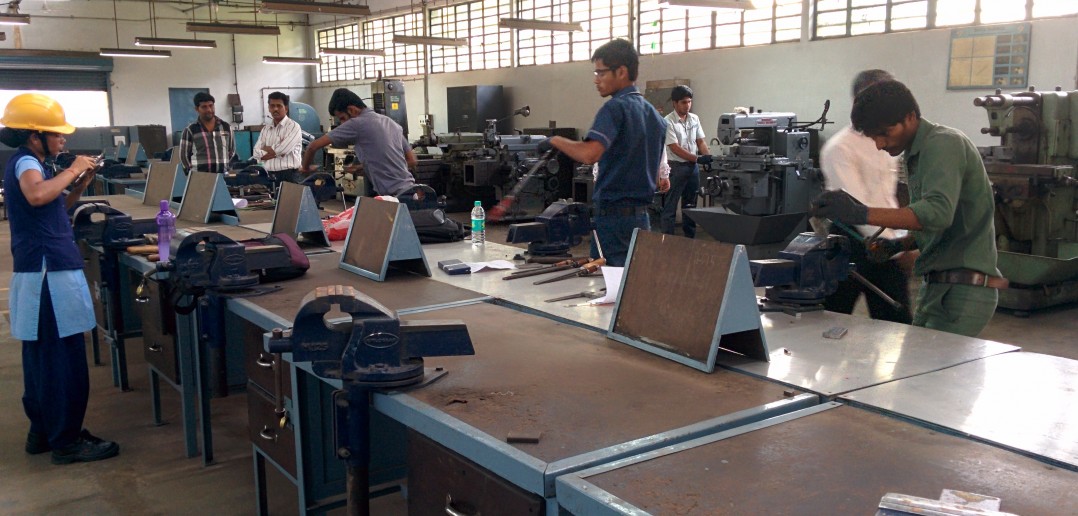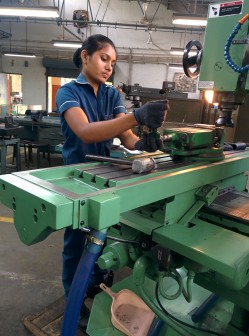Skill is the ability of a person to perform what he or she knows well; it’s about being human and developing individual competencies. In this Skill Talk by Dr. Neeta Pradhan Das, Director – Skill Development at Confederation of Indian Industry (CII), we look into how overemphasis on formal education and certification has sidelined the vocational aspects, thus creating a parallel stream of learning for skilling. Let’s read on for more on the role of CII and insights from the industry perspective.
In 2006, CII became a member of World Skills, the largest platform for skills excellence and a forum for all the countries in the world. In India, when we conduct Work Skills Competition, we don’t judge on the basis of academic qualifications, what matters is how sound you are in the skill that you’ve selected. We are making people aware that formal education should not be the basis for recognizing a skill.
Our objective is also to recognize and reward workers who have been on the shop floors for 10 -15 years. For example, someone remains a machinist for years, even after so much of knowledge and experience. In most cases they don’t have opportunities for upward mobility in the organization. We are also promoting RPL, as a way to boost the confidence levels of informal workers by acknowledging their knowledge and skills and certifying them for better employability and livelihoods.
 Sensitizing and evangelizing
Sensitizing and evangelizing
Right now there is a huge divide between the ‘educated’ and the ‘skilled’ making them run like parallel systems. This is what we are trying to bridge with vocationalization of education. We are creating awareness at the school level. For example, if someone loves housekeeping, gardening or baking and may discover it in the school itself that it’s a career option. If you look at countries like Germany and Switzerland, these things are introduced at the school level.
CII has a say in policy also, we try and get the ground level industry knowledge to complement other stakeholders. We didn’t want to sit in a room and think from 35000 feet! While working on ground, you understand the day-to-day problems and how you can solve them. Our effort is to get all the stakeholders together and find the best way to put through one ecosystem.
Impact on the manufacturing sector
We are aware that we actually we missed the manufacturing bus! With the IT and services industry boom and the education sector contributing to it – we seem to have jumped from agriculture to services, leaving the manufacturing sector. In fact, the conversation around skills was revived about 10 years ago when the manufacturing industry was keen on expanding their operations but they were are not getting trained workforce as per their requirements. That is when skills got into limelight and vocational aspects of education were discussed and deliberated by connecting them with employment.
Meeting the expectations from the industry
The skill development sector is fast evolving as an industry in itself with the current push from the government and the increasing number of training providers. To sustain in the long run, it’s the quality of outcomes from the training providers that will differentiate. They can’t compromise on that. Otherwise it will be like those fly by night operators who come and make a little money and then go away and the large section of society is not benefited.
There’s an accreditation process coming up and ultimately the market forces will take control. The industry will shortlist the training providers; the test is to get jobs for the trainees by making them industry-ready. It is all to do with performance, look at how the ITI s are being reviewed critically after the industry has taken them over. The message from the industry is very clear: we want trained people, who meet our requirements and the live up to current market needs. Earlier industry was never involved in this process. They would visit the ITI s only for placement, they were not involved in curriculum or management issues.
If industry starts hiring skilled workers will everything change? No, industry is not a magic bullet, we should understand the system which has to change. All the stakeholders should collaborate to bring in the desired changes.
Awareness and mindset changes
In our country, vocational training is largely managed by the government, it’s only now that there is intervention from private sector. The industry has been playing an advisory role in terms of modernizing the equipment in ITIs and helping them update their curriculum to meet the emerging needs. Large industries have been recruiting ITIs students for long; it’s only the SMEs and smaller ones who need to employ skilled workers from the formal market. Most of them prefer to remain small with semi-skilled labour due to various constraints. We can adapt our apprenticeship model to provide skilled workers to SMEs and help them scale up with quality output and high productivity.
It’s a mindset change that is needed at the individual level to leverage the efforts from the Ministry of Skill Development and Entrepreneurship (MSDE). We are hopeful that the SME sector will also come into the fold by avoiding short-term thinking. We are coming up with differential wage for trained workers. People should also understand the recognition and the value add that comes with training and certification. This could be in terms of the salary or the nature of work. For example, why don’t we tell the mechanics who have their own shops to display their training certificates since they are formally qualified from ITI or similar institutions. For me they are as professional as the doctors. If they don’t ‘treat’ or repair your car, it will not work. Like the doctors, they should display their certificates on the wall. They must be proud of what they’ve learnt.
Such respect for profession is also lacking because this sector was not looked into for the last several years. The change in the last 5 years in skill development from the government has really given a push, now it needs to be sustained. Good thing is we’ve moved away from blame game and we realize that it’s necessary that we join hands. Things are moving along in the right direction.













Comments 1